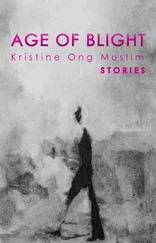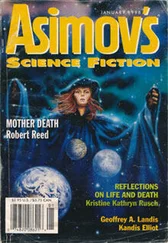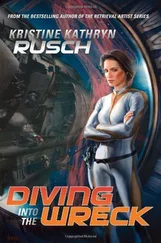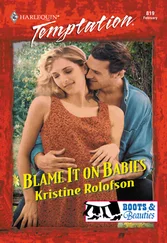Kristine Rusch - Echea
Здесь есть возможность читать онлайн «Kristine Rusch - Echea» весь текст электронной книги совершенно бесплатно (целиком полную версию без сокращений). В некоторых случаях можно слушать аудио, скачать через торрент в формате fb2 и присутствует краткое содержание. Жанр: Фантастика и фэнтези, на английском языке. Описание произведения, (предисловие) а так же отзывы посетителей доступны на портале библиотеки ЛибКат.
- Название:Echea
- Автор:
- Жанр:
- Год:неизвестен
- ISBN:нет данных
- Рейтинг книги:3 / 5. Голосов: 1
-
Избранное:Добавить в избранное
- Отзывы:
-
Ваша оценка:
- 60
- 1
- 2
- 3
- 4
- 5
Echea: краткое содержание, описание и аннотация
Предлагаем к чтению аннотацию, описание, краткое содержание или предисловие (зависит от того, что написал сам автор книги «Echea»). Если вы не нашли необходимую информацию о книге — напишите в комментариях, мы постараемся отыскать её.
Echea — читать онлайн бесплатно полную книгу (весь текст) целиком
Ниже представлен текст книги, разбитый по страницам. Система сохранения места последней прочитанной страницы, позволяет с удобством читать онлайн бесплатно книгу «Echea», без необходимости каждый раз заново искать на чём Вы остановились. Поставьте закладку, и сможете в любой момент перейти на страницу, на которой закончили чтение.
Интервал:
Закладка:
Kristine Kathryn Rusch
Echea
I can close my eyes and she appears in my mind as she did the moment I first saw her: tiny, fragile, with unnaturally pale skin and slanted chocolate eyes. Her hair was white as the moon on a cloudless evening. It seemed, that day, that her eyes were the only spot of color on her haggard little face. She was seven, but she looked three.
And she acted like nothing we had ever encountered before.
Or since.
We had three children and a good life. We were not impulsive, but we did feel as if we had something to give. Our home was large, and we had money; any child would benefit from that.
It seemed to be for the best.
It all started with the brochures. We saw them first at an outdoor cafe near our home. We were having lunch when we glimpsed floating dots of color, a fleeting child’s face. Both my husband and I touched them only to have the displays open before us:
The blank vista of the Moon, the Earth over the horizon like a giant blue and white ball, a looming presence, pristine and healthy and somehow guilt-ridden. The Moon itself looked barren, as it always had, until one focused. And then one saw the pockmarks, the shattered dome open to the stars. In the corner of the first brochure I opened, at the very edge of the reproduction, were blood-splotches. They were scattered on the craters and boulders, and had left fist-sized holes in the dust. I didn’t need to be told what had caused it. We saw the effects of high velocity rifles in low gravity every time we downloaded the news.
The brochures began with the Moon, and ended with the faces of refugees: pallid, worn, defeated. The passenger shuttles to Earth had pretty much stopped. At first, those who could pay came here, but by the time we got our brochures, Earth passage had changed. Only those with living relatives were able to return. Living relatives who were willing to acknowledge the relationship-and had official hard copy to prove it.
The rules were waived in the case of children, of orphans and of underage war refuges. They were allowed to come to Earth if their bodies could tolerate it, if they were willing to be adopted, and if they were willing to renounce any claims they had to Moon land.
They had to renounce the stars in order to have a home.
We picked her up in Sioux Falls, the nearest star shuttle stop and detention center to our home. The shuttle stop was a desolate place. It was designed as an embarkation point for political prisoners and for star soldiers. It was built on the rolling prairie, a sprawling complex with laser fences shimmering in the sunlight. Guards stood at every entrance, and several hovered above. We were led, by men with laser rifles, into the main compound, a building finished almost a century before, made of concrete and steel, functional, cold, and ancient. Its halls smelled musty. The concrete flaked, covering everything with a fine gray dust.
Echea had flown in on a previous shuttle. She had been in detox and sick bay; through psychiatric exams and physical screenings. We did not know we would get her until they called our name.
We met her in a concrete room with no windows, shielded against the sun, shielded against the world. The area had no furniture.
A door opened and a child appeared.
Tiny, pale, fragile. Eyes as big as the moon itself, and darker than the blackest night. She stood in the center of the room, legs spread, arms crossed, as if she were already angry at us.
Around us, through us, between us, a computer voice resonated:
This is Echea. She is yours. Please take her, and proceed through the doors to your left. The waiting shuttle will take you to your preassigned destination.
She didn’t move when she heard the voice, although I started. My husband had already gone toward her. He crouched and she glowered at him.
"I don’t need you," she said.
"We don’t need you either," he said. "But we want you."
The hard set to her chin eased, just a bit. "Do you speak for her?" she asked, indicating me.
"No," I said. I knew what she wanted. She wanted reassurance early that she wouldn’t be entering a private war zone as difficult and devastating as the one she left. "I speak for myself. I’d like it if you came home with us, Echea."
She stared at us both then, not relinquishing power, not changing that forceful stance. "Why do you want me?" she asked. "You don’t even know me."
"But we will," my husband said.
"And then you’ll send me back," she said, her tone bitter. I heard the fear in it.
"You won’t go back," I said. "I promise you that."
It was an easy promise to make. None of the children, even if their adoptions did not work, returned to the Moon.
A bell sounded overhead. They had warned us about this, warned us that we would have to move when we heard it.
"It’s time to leave," my husband said. "Get your things."
Her first look was shock and betrayal, quickly masked. I wasn’t even sure I had seen it. And then she narrowed those lovely chocolate eyes. "I’m from the Moon," she said with a sarcasm that was foreign to our natural daughters. "We have no things."
What we knew of the Moon Wars on Earth was fairly slim. The news vids were necessarily vague, and I had never had the patience for a long lesson in Moon history.
The shorthand for the Moon situation was this: the Moon’s economic resources were scarce. Some colonies, after several years of existence, were self-sufficient. Others were not. The shipments from Earth, highly valuable, were designated to specific places and often did not get there. Piracy, theft, and murder occurred to gain the scarce resources. Sometimes skirmishes broke out. A few times, the fighting escalated. Domes were damaged, and in the worst of the fighting, two colonies were destroyed.
At the time, I did not understand the situation at all. I took at face value a cynical comment from one of my professors: colonies always struggle for dominance when they are away from the mother country. I had even repeated it at parties.
I had not understood that it oversimplified one of the most complex situations in our universe.
I also had not understood the very human cost of such events.
That is, until I had Echea.
We had ordered a private shuttle for our return, but it wouldn’t have mattered if we were walking down a public street. I attempted to engage Echea, but she wouldn’t talk. She stared out the window instead, and became visibly agitated as we approached home.
Lake Nebagamon is a small lake, one of the hundreds that dot northern Wisconsin. It was a popular resort for people from nearby Superior. Many had summer homes, some dating from the late 1800s. In the early 2000s, the summer homes were sold off. Most lots were bought by families who already owned land there, and hated the crowding at Nebagamon. My family bought fifteen lots. My husband’s bought ten. Our marriage, some joked, was one of the most important local mergers of the day.
Sometimes I think that it was no joke. It was expected. There is affection between us, of course, and a certain warmth. But no real passion.
The passion I once shared with another man-a boy actually-was so long ago that I remember it in images, like a vid seen decades ago, or a painting made from someone else’s life.
When my husband and I married, we acted like an acquiring conglomerate. We tore down my family’s summer home because it had no potential or historical value, and we built onto my husband’s. The ancient house became an estate with a grand lawn that rolled down to the muddy water. Evenings we sat on the verandah and listened to the cicadas until full dark. Then we stared at the stars and their reflections in our lake. Sometimes we were blessed with the northern lights, but not too often.
Читать дальшеИнтервал:
Закладка:
Похожие книги на «Echea»
Представляем Вашему вниманию похожие книги на «Echea» списком для выбора. Мы отобрали схожую по названию и смыслу литературу в надежде предоставить читателям больше вариантов отыскать новые, интересные, ещё непрочитанные произведения.
Обсуждение, отзывы о книге «Echea» и просто собственные мнения читателей. Оставьте ваши комментарии, напишите, что Вы думаете о произведении, его смысле или главных героях. Укажите что конкретно понравилось, а что нет, и почему Вы так считаете.











